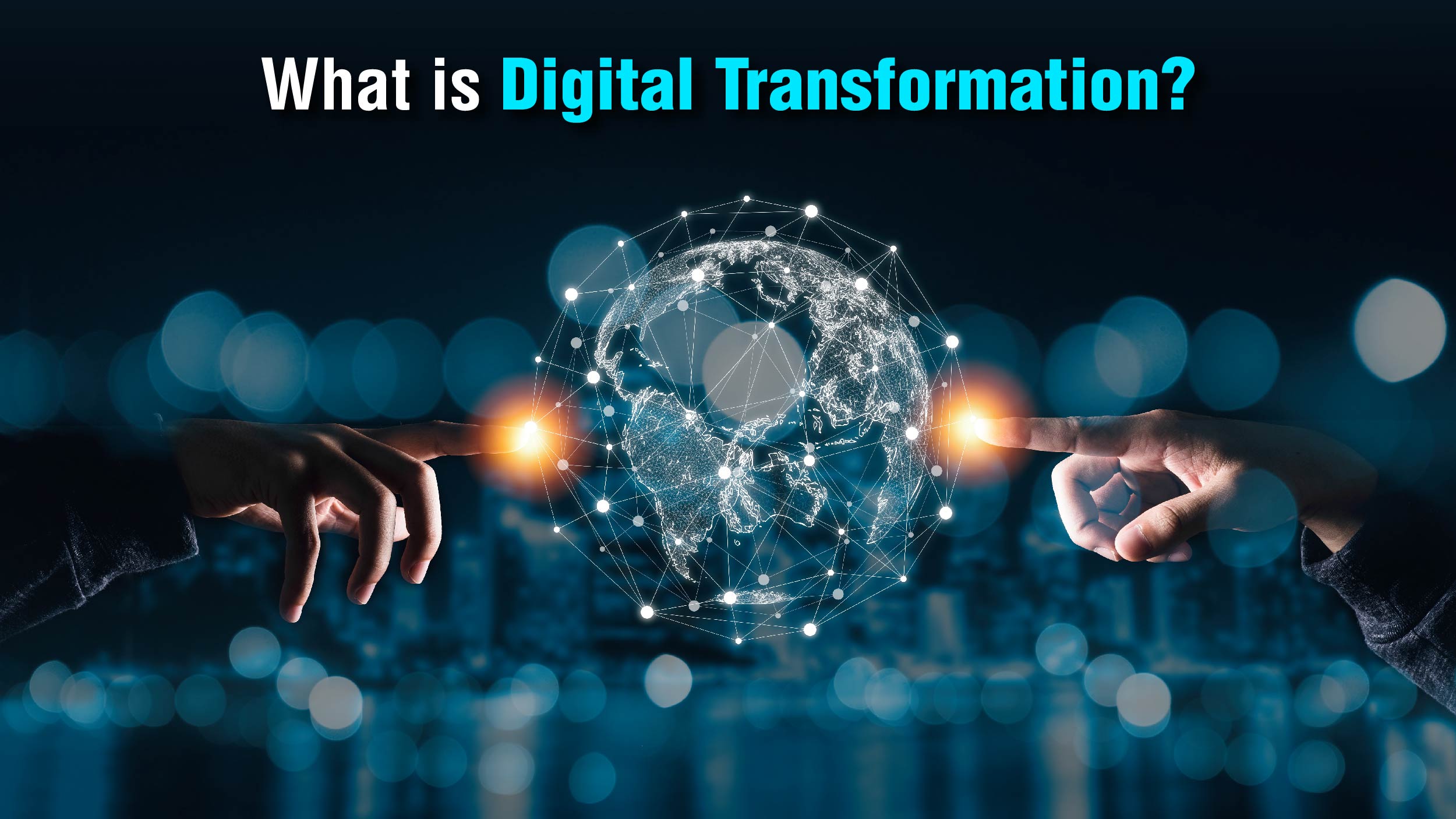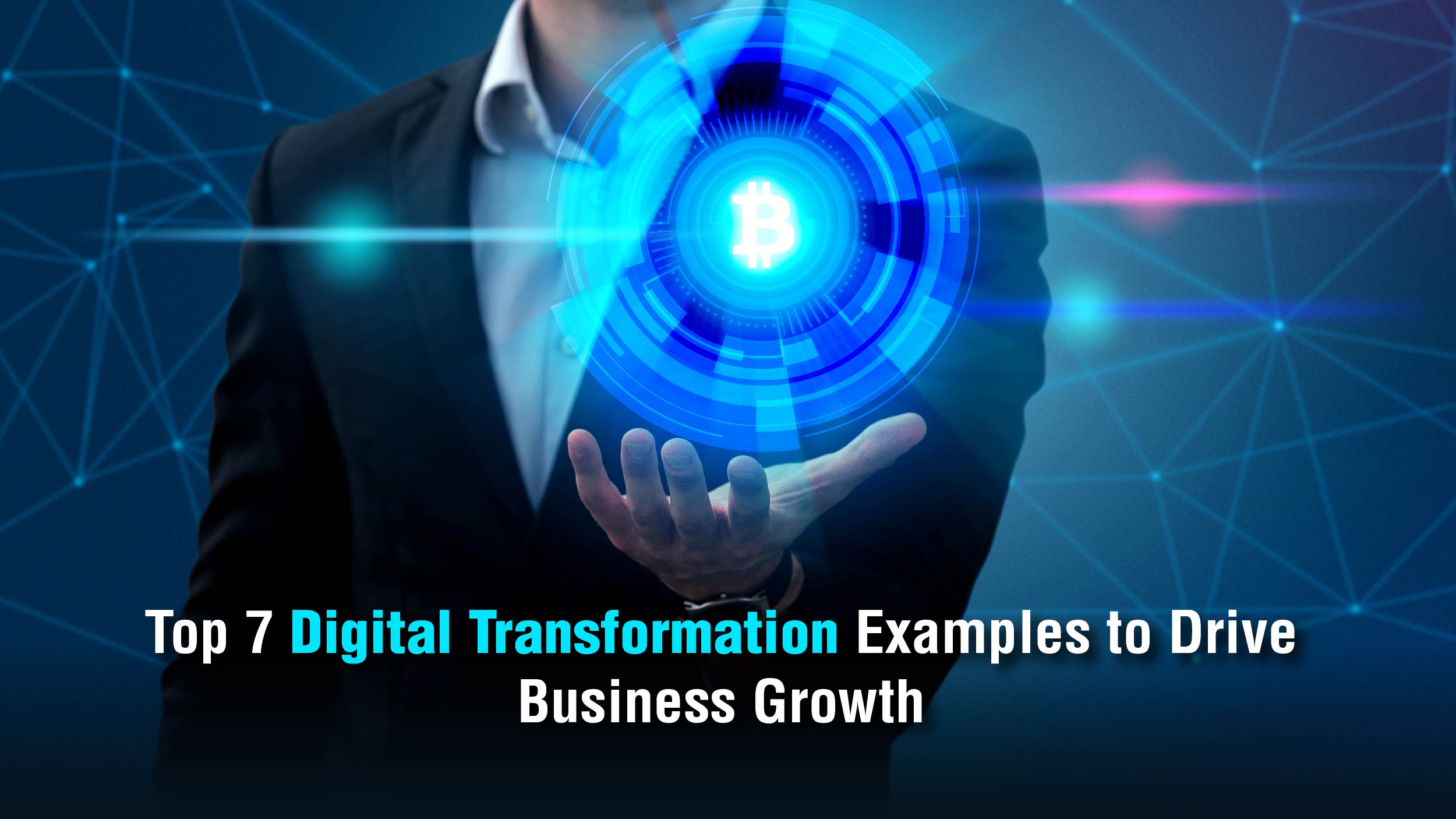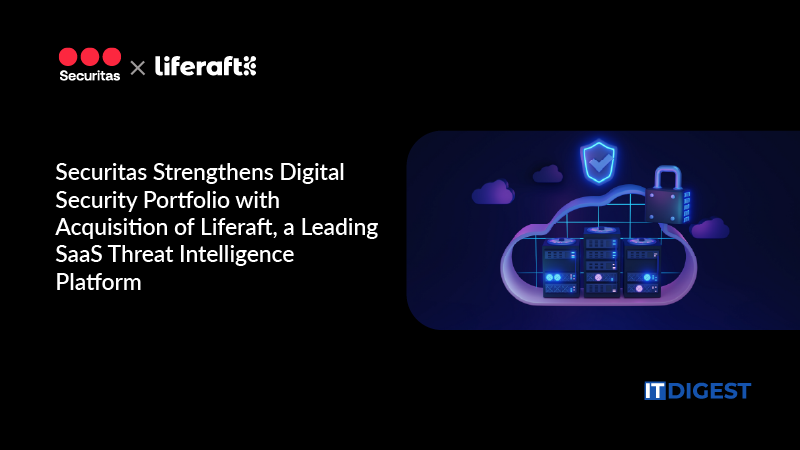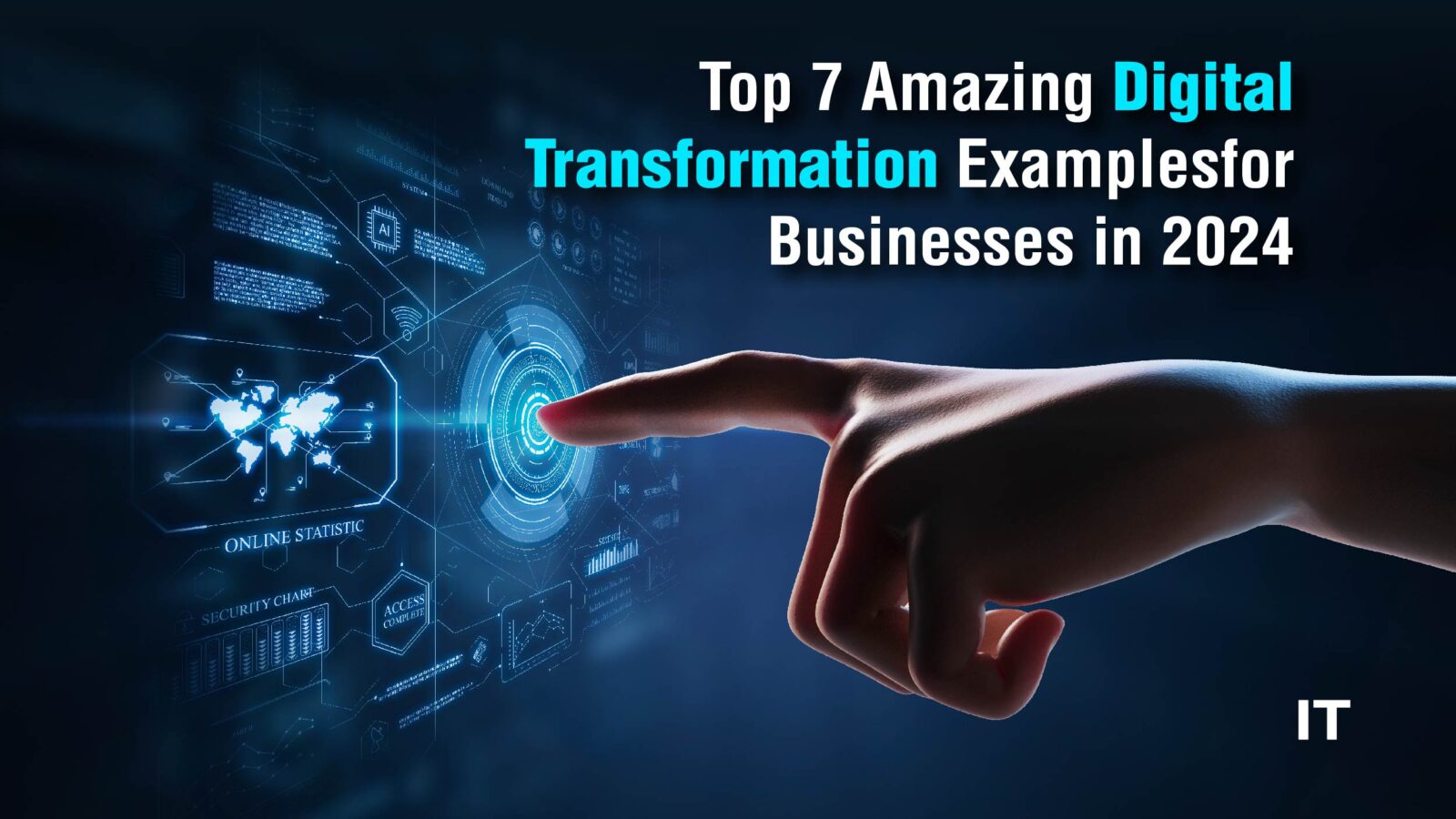Digital transformation is the process of integrating digital technology into all aspects of business operations. This means adopting new technologies and uptaking cultural shift that encourages experimentation.
Everything is moving toward digital these days. This prompts businesses to adopt novel measures to remain competitive and relevant. According to IDC, global digital transformation spending is anticipated to hit a $3.4 trillion valuation by 2026.
This article delves into the top 7 amazing digital transformation examples that help you develop strategies.
What is Digital Transformation?
 Digital transformation refers to the incorporation of digital technology across all facets of a business, altering its fundamental operations and methods of delivering value to customers. This process necessitates a cultural transition, urging organizations to consistently question existing practices, engage in experimentation, and accept failures as part of the learning process.
Digital transformation refers to the incorporation of digital technology across all facets of a business, altering its fundamental operations and methods of delivering value to customers. This process necessitates a cultural transition, urging organizations to consistently question existing practices, engage in experimentation, and accept failures as part of the learning process.
The main objective is to establish a competitive edge by implementing technology on a broad scale to enhance customer experiences and reduce expenses. By 2027, 50% of enterprises will embrace industry cloud platforms to expedite their business processes.
Top 7 Digital Transformation Examples to Drive Business Growth

UPS
UPS has been at the forefront of digital transformation within the logistics sector, employing a comprehensive strategy to revolutionize its operations.
Through the integration of cutting-edge technologies like artificial intelligence, robotics, and data analytics, UPS has significantly optimized its logistical processes.
This integration has not only bolstered operational efficiency but also elevated customer experiences by offering innovative solutions tailored to their needs.
Initiatives such as UPS My Choice and the UPS Access Point network have empowered customers with greater control and flexibility over their shipments, enhancing overall satisfaction.
Moreover, UPS’s commitment to sustainability is evident through its investment in initiatives like electric vehicles and renewable energy sources.
By prioritizing both digital innovation and environmental responsibility, UPS has solidified its position as a leader in global logistics, driving efficiency and customer satisfaction.
Netflix
Netflix’s journey through digital transformation signifies a strategic evolution in the entertainment industry.
Through the innovative use of data analytics, artificial intelligence, and cloud computing, Netflix with a $272.7 billion valuation has revolutionized how content is consumed and delivered to users worldwide.
This transformation has not only optimized the user experience but also fueled Netflix’s growth as a global entertainment powerhouse.
Key initiatives such as personalized recommendations, content localization, and original programming have propelled the company to the forefront of the streaming industry, setting new standards for customer engagement and satisfaction.
Under Armour
Under Armour which was once a small business has now become a global franchise. The company focused on consumer-centric principles and adaptability.
Through initiatives such as the Connected Fitness app, Under Armour personalized experiences for each user, nurturing deeper connections and loyalty.
Furthermore, by seamlessly integrating physical and digital offerings exemplified by products like Armourbox, the company delivered tailor-made solutions while leveraging advanced analytics to propel subscription-based services.
This unwavering focus on customer needs has cemented Under Armour’s status as a trailblazer in the digital fitness landscape, fostering ongoing growth and innovation.
Also read: 7 Must-Have Data Integration Tools for 2024 and Beyond
Nike
Nike embarked on a digital transformation journey when it sensed a need to refresh its approach and adapt to changing market dynamics.
The transformation encompassed a shift in mindset, supply chain optimization, and brand revitalization, particularly crucial during the pandemic.
To enhance customer engagement, Nike focused on leveraging data analytics, revamping its e-commerce strategy, and strengthening digital marketing efforts while bolstering direct-to-customer sales channels.
Furthermore, the company brought production capabilities in-house, fostering market agility, and invested in cutting-edge technologies such as robotics and 3D printing.
This strategic approach enabled Nike to introduce concept stores, expand membership opportunities, and elevate the overall customer experience by leveraging digital consumer insights alongside an omnichannel contact center.
Spotify
Spotify, the Swedish streaming giant, prioritized enhancing customer value and internal scalability by shifting its focus to customer engagement metrics and restructuring its internal organization.
Recognizing the success of diversifying their offerings beyond music to include podcasts, live audio, and audiobooks, Spotify embarked on further transformation efforts to sustain growth.
In the initial phase, Spotify overhauled its team structure, fostering a culture that fosters creativity and experimentation, resulting in a more agile and innovative organization.
Each product within Spotify’s ecosystem is now managed by multidisciplinary teams, facilitating collaboration and yielding well-crafted products that elevate user experience.
This organizational restructuring underscores Spotify’s commitment to continuous innovation, personalized user experiences driven by data analytics and AI, global expansion through localization and partnerships, and data-driven decision-making.
Airbnb
Airbnb’s approach to digital transformation involved several key strategies. Firstly, they prioritized creating a seamless booking experience through sleek digital interfaces, simplifying the process from dreaming to experiencing unique accommodations.
Secondly, Airbnb emphasized transparency and trust by leveraging user reviews, transforming hosts into virtual tour guides, and fostering deeper connections between guests and hosts.
Additionally, the company implemented secure payment systems to ensure peace of mind for both hosts and guests.
Lastly, Airbnb’s diverse range of accommodations, spanning from treehouses to castles, promoted a sense of belonging and adventure, setting them apart in the hospitality industry.
These strategies collectively underscored Airbnb’s commitment to enhancing user experience, fostering trust, and championing diversity in the realm of accommodation.
Sophos
Sophos adopted Whatfix, an interactive, on-demand training platform as a part of their transformation strategy. This allowed users to learn Salesforce functionalities seamlessly within their workflow, improving adoption and effectiveness.
Utilizing Whatfix, Sophos created walkthroughs and smart pop-ups for various Salesforce features, enhancing user proficiency and aligning sales and product management teams through unified communication.
The results were significant, with a 15% reduction in sales operations support tickets globally, saving 1070 man-hours, and achieving an impressive ROI of 342%. This showcases the transformative impact of leveraging innovative solutions to maximize the value of CRM implementations like Salesforce.
End Pointers
Digital transformation is a complex and dynamic process that requires organizations to navigate unique challenges and find personalized solutions. It is essential to identify the right transformation model and implement new technologies tailored to individual business requirements.
Understanding the potential roadblocks faced by different industries and organizations can better prepare you for the journey. By embracing transformative solutions and customizing strategies to fit specific needs, organizations can unlock new opportunities, enhance efficiency, and drive long-term success in the digital era.


































